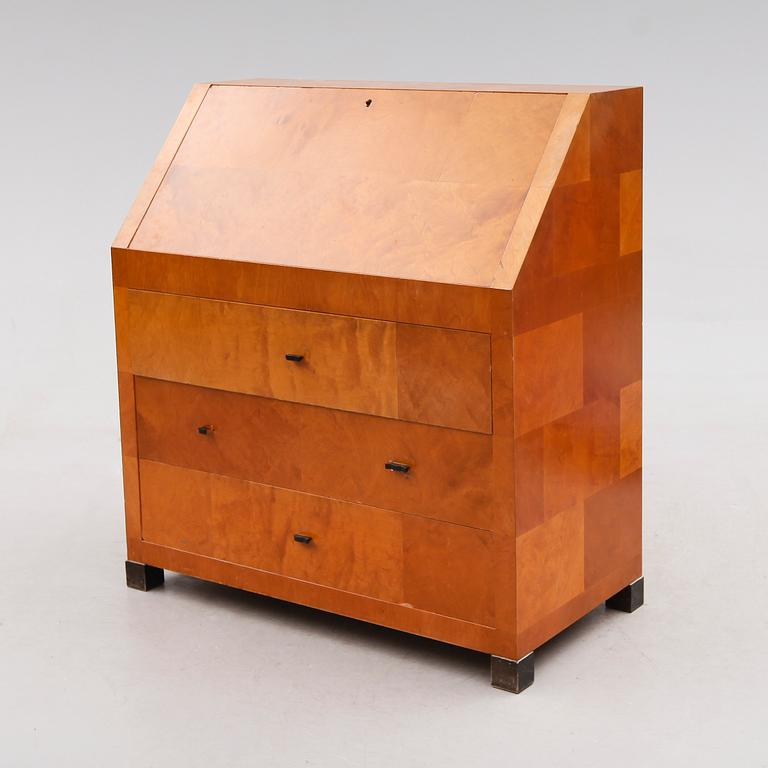Carl Malmsten
SEKRETÄR, Carl Malmsten, Nordiska Kompaniet, 1900-talets första hälft.
Fanerad med björk. Nedfällbar skrivklaff med bakomliggande skrivinredning. Tre lådor under skrivklaff. Svärtade beslag och fotavslutningar. Brännstämplad CM och brickmärkt R 33836 - 5 11 29. Bredd 96. Djup 49. Höjd 104 cm.
Avslag på beslag, delar saknas. Slitage, repor och märken. Smärre fanerskador. Nyckelbeslag i skrivklaff saknas. Nyckel saknas.
Suunnittelijat
Carl Malmsten is one of Sweden's most famous furniture designers. Many of his furniture are considered modern design classics, for example, the cane chair "Lilla Åland", the armchair "Farmor", the sofa "Samsas", the cabinet "Herrgården", and the furniture series "Vardag".
Both "Lilla Åland" and "Vardag" adopted the ideals of "beautiful everyday goods" of the 1940s. Their neat shape and frugal design quickly became timeless interior details that we still see in many homes today.
At the beginning of his career, Malmsten interned at various carpentry workshops and studied furniture at Nordiska museet and Skansen. He had his breakthrough in 1916 when he was commissioned to design part of the interior of Stockholm's City Hall.
During his career, Malmsten collaborated with several architects, such as Ragnar Östberg, Ivar Tengbom, and Ferdinand Boberg. He designed furniture for Stockholm's concert hall and Ulriksdal castle. He participated in the now iconic hosing exhibition at Liljevalchs gallery in 1917, where the term "Beautiful everyday goods" was coined.

















































